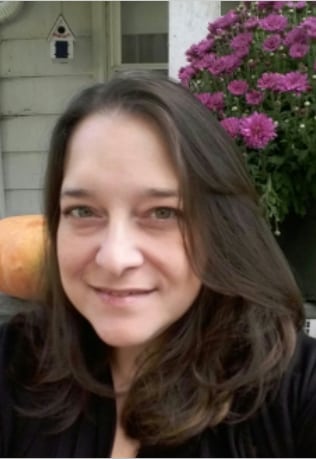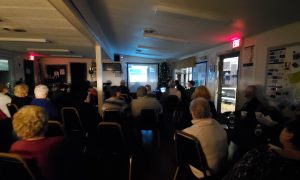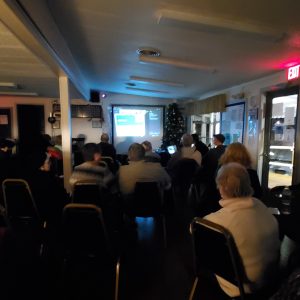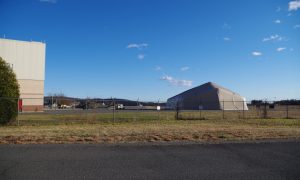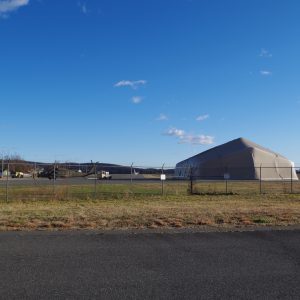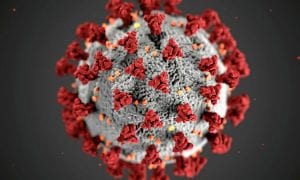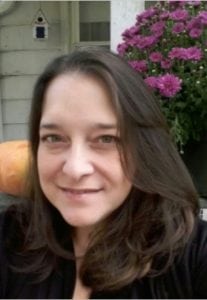
Kristen Mello, a founding member of WRAFT (Westfield Residents Advocating for Themselves.) (Photo submitted)
WESTFIELD – More than a year ago The Westfield News broke the story about possible contamination in the city water supply.
One of the first stories on the subject contained an interview with Kristen Mello, a fairly unknown resident at the time, who was very vocal that residents and politicians alike should be concerned about the City’s water quality.
Fast forward to May 2018 and Ms. Mello’s name permeates the media’s coverage of the matter as she has become the defacto spokesperson for WRAFT (Westfield Residents Advocating For Themselves), an advocacy group formed to promote awareness of contaminants in the drinking water.
But, who is Kristen Mello? We sat down with her to learn more about her background and what drives her.
Ms. Mello, who was raised on Vadnais St., is part of a shrinking group of residents who can say they were born at Noble Hospital.
After graduating Westfield High School in 1991 she went to the University of New England in Biddeford, ME to study marine biology but switched majors and colleges soon after to attend UMass Amherst and major in Chemistry. She graduated UMass cum laude with a BS in Chemistry.
Upon completing her BS in Chemistry from UMass she continued her studies at the University of Delaware focusing on Analytical Chemistry, which is the science of obtaining, processing, and communicating information about the composition and structure of matter.
While working on her masters degree she relocated to Arizona for a position as Senior Scientist with Instrumentation Metrics, Inc before finally graduating from the University of Delaware in 2002 with an M.Sc. in Analytical Chemistry.
Ms. Mello was close to completing her doctoral work when personal changes happened and she relocated back to Westfield.
Over the years she has held numerous positions outside the chemistry world and once tried to get back to her marine biology roots by working with the Cetacean Communication Whavelets Project. Funding for that program dried up leaving her to be a, nearly full time, caregiver to her nieces here in the city.
In the summer of 2015 one of Ms. Mello’s nieces was born and, as she was caring for her, she would regularly filter and boil tap water before providing it to her niece to drink. When the water report of 2015 was issued she noticed the presence of PFAS compounds in the water and realized that by boiling her niece’s water she was inadvertently increasing the little girl’s exposure to the PFAS chemical as boiling concentrates the compound.
From the Interstate Technology & Regulatory Council’s web site, “PFAS (per- and polyfluoroalkyl substances) are a large and complex class of anthropogenic compounds whose prevalence in the environment have become an emerging, worldwide priority in environmental and human health. Some PFAS are environmentally persistent and bioaccumulative, and may pose human health risks.”
This information began the crusade to make people aware of what was found in the City’s water supply.
She insists she harbors no animosity towards anyone, either elected or employed in the City, but admits to frustration that those same people don’t seem to be taking this seriously enough and are not open to an “outsider” offering additional data and research from professionals who are judged by their peers for the quality of their work. Nor do they seem open to conducting research to study if there are any long term health risks due to exposure of the chemicals in the water
“I offer data from research professionals at major universities and laboratories who have devoted years to this research, and whose results have been verified by others in the field, yet no one listens,” said Mello of her interactions with officials of Westfield.
Through her research she has found studies examining whether the exposure to PFAS’ can cause immune suppression in those populations exposed to the chemical. In other words, the studies are examining whether inoculations for diseases such as tetanus, diphtheria, or possibly pertussis, are weakened due to a person’s regular exposure to PFAS, and at what levels of exposure.
There are two immediate concerns that Ms. Mello is most adamant about.
The first issue is getting clean water to residents as quickly as possible. This is where she and city officials are butting heads as to the most efficient way to accomplish this task. She is a proponent of seeking water from other communities whereas Westfield officials prefer to address their own water concerns without going outside.
The second is that she is requesting long term blood analysis of residents begin so that a comprehensive understanding of what the exposure may or may not be causing in the way of health concerns. This research could take decades before meaningful data surfaces and she states the testing must start immediately.
“There’s no way to know for sure unless we test resident’s blood and we must begin now,” she stated.
Ms. Mello believes that if done right and done cooperatively, Westfield could capitalize on this crisis by creating a new economic engine by way of water and health testing.
At the end of our time together Ms. Mello wanted to get one final point across when asked why she’s so involved in this issue.
“Because you can’t tell the kids “someone” should do something to help (about the water) when you aren’t willing to step up and get involved yourself,” she said.

